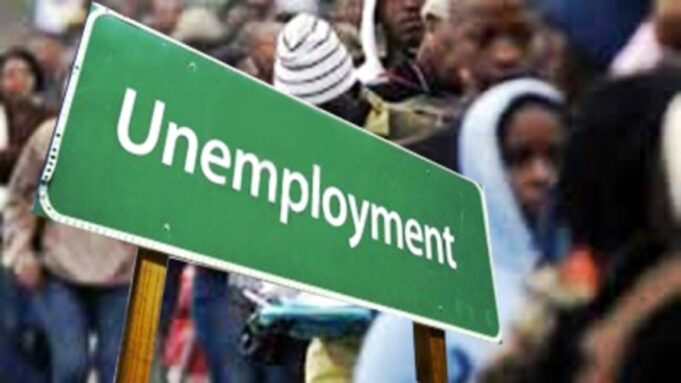The National Bureau of Statistics (NBS) has declared that Nigeria’s unemployment rate dropped to 4.1 per cent in the first quarter (Q1) of 2023.
The unemployment rate dropped from 5.3 per cent recorded in the previous quarter.
The Statistician-General of the Federation and Chief Executive Officer of the NBS, Adeniran Adeyemi, made the declaration during the inauguration of the New Nigeria Labour Force Survey (NLFS) in Abuja on Thursday, August 24, 2023.
Adeniran said the drop in NLFS from 33.3 per cent in the fourth quarter 2020 to its present rate was based on change in methodology adopted and not government performance.
He said: “Let me at this point clearly state that this methodology review has nothing to do with whitewashing the image of any government or political party.
“This process is routine for any responsible statistical office, and we have no reason to continue to ignore the adoption of new methods when the evidence clearly indicates the need for it.
“As a national statistical office, our responsibility is to provide government and all users with accurate data for evidence-based decision making, adhering to the highest possible standards, and our commitment in this regard is unwavering.”
According to Adeniran, the new method which indicates that not less than 73 per cent of Nigerians are engaged in one form of work, recognises all forms of engagements from which individuals earn income.
READ ALSO: Tinubu: I’ll tackle insecurity, youth unemployment
He said using the new ILO definition, the survey showed that the unemployment rate for the fourth quarter of 2022 stood at 5.3 per cent and 4.1 per cent for the first quarter of 2023.
The NBS boss added: “This figure aligns perfectly with neighbouring countries around Nigeria. Ghana (3.9 per cent), Niger (0.5 per cent), Chad (1.4 per cent), Cameroon (4.0 per cent), Togo (4.1 per cent), Benin Republic (1.7 per cent) amongst others.
“In responding to the shifting global landscape and the ever-changing data ecosystem, it is imperative for us to continuously adapt the way in which we collect and analyse data.
“This is to ensure that we are producing data that reflects reality and the experiences of Nigerians.
“These changes also includes a revision to the design and methodology applied in the conduct of the actual survey.
“Which is the survey that produces commonly known headline Unemployment and Underemployment rates, as well as other labour market indicators that guide policymakers, researchers, and other users.”
According to him, the results indicates a scarcity of Wage-employment, as the share of those employed in Wage-employment during the reference quarters was 13.4 per cent in Q4 2022 and 11.8 per cent in Q1 2023.
Adeniran said the working age population which was defined previously as persons aged 15-64, is now defined as persons aged 15 and above.
He said this was a very important change, particularly in the Nigerian context as it recognises the labour contributions of persons above the age of 64 which was not done previously.
The NBS boss said the unemployed appeared to be the most controversial amongst the changes announced under the review.
Adeniran stated: “In the real sense, nobody works 1 hour a week and then sits down and does nothing else when there are opportunities for more hours of work.
“The statistics show that only 7.1 per cent of those working, work between 1–19 hours per week. So, 1 hour is just a benchmark and nothing more than that.”
The survey revealed that about three quarters of Nigerians in the working age population, 73.6 per cent in Q4 2022 and 76.7 per cent in Q1 2023 were engaged in some form of work for pay or profit in the quarters under review.








